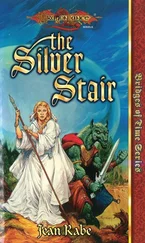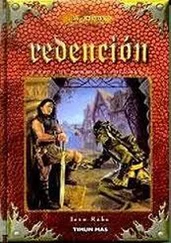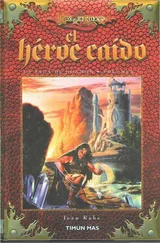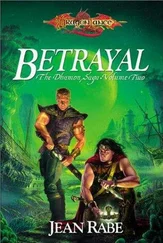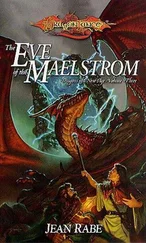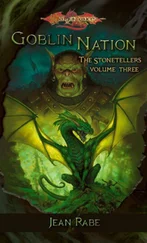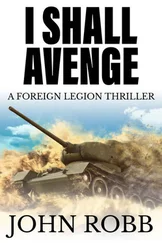A thought flashed through his mind.
“I’m not yellow,” he thought, as he turned to go to the aid of D’Aran. “I can’t be yellow because I’m not afraid now…”
He saw that D’Aran was not in need of help. D’Aran was already leaving the inert Gallast and moving into the passage.
Keith knew what the lieutenant was about to do. He did it for him. He ran panting towards the bunk room.
The legionnaires were pressed near the door. Their faces were baffled and anxious. But they were obeying D’Aran’s order to remain there.
“Get to hell out of it,” Keith bawled in rich English vernacular.
Few of them understood his words. But the meaning was made clear by wild gestures. The garrison stormed out of the bunk room, still unsure of exactly what had happened, or of what was expected of them.
D’Aran halted them as the foremost reached the corridor leading to the outer door.
He pointed to the three guns—two on the ground, one half out of a holster. And to the fallen Lebel. The sign was enough. Four legionnaires armed themselves.
“Stay where you are,” D’Aran ordered.
He returned to the door and looked towards the ramparts. Keith, who had affected not to hear the command, was at his side.
The Arabs were no longer still, although they remained on the ledge. They were gesticulating, chattering, showing every aspect of scared indecision. Some; more courageous than the others, were making menacing movements with their muskets towards the four guards.
And the guards on each side had dropped to their knees, so as to sight more precisely at the mob.
D’Aran muttered: “ Dieu … there’ll be a massacre!”
It certainly seemed so. If the four guards opened fire at the tribesmen from that range, the result would be utter carnage. And—because they were obviously very frightened themselves—they intended to do just that. Their attention must be distracted immediately.
D’Aran and Keith fired together at the four men.
But the range was too long for accurate pistol fire. The slugs travelled wide and low. Yet the brief volley served its purpose.
The guards looked away from the Arabs and towards the two men at the compound door.
Then the Arabs charged.
They divided off into two sections like a disintegration of quicksilver. They were upon the four guards before they had time to turn back their heads.
The guards disappeared into twin seas of swirling, tattered robes. They remained invisible for nearly a minute, while the Arabs did their work in silence.
And when the Arabs drew back, Keith felt sick. He looked away. So did D’Aran.
D’Aran forgot his revulsion as he gazed again at the Arabs.
He said: “ Sucre ! Stop them!”
Then he shouted uselessly.
The tribesmen were clambering over the wall and dropping outside the fort. Presently, the only token of their visit were the four still bodies and the old Bormone who had died earlier.
D’Aran ran towards the gate, shouting to them. He used desperate persuasions in an effort to bring them back.
But his voice was drowned by the thudding of their horses’ hooves. When D’Aran could be heard again, the hoofbeats had faded into the empty distance.
He returned slowly to the building. He ignored the unconscious body of Gallast. He gave scant attention to Professor Daak, who was crouching in a semi-swoon.
As he entered the doorway, he said to the legionnaires: “ Mes amis , I hoped that those Arabs, at least, might have been saved. I wanted to warn them that they must leave this area immediately. But since they would not listen, I fear they will die. As for us—we must start our march to the foothills.”
He examined his watch. He was astonished to see the hands indicating two o’clock. The hour was confirmed by the position of the sun.
D’Aran continued: “We have only twenty-five hours to get there and prepare protective positions, but I think it can be done. And let us thank God for one great mercy—we have enough water for the march…”
Professor Daak interrupted. He had been listening dazedly to D’Aran’s words. Still crouching and looking like an obese and thrashed animal, he whimpered: “What about me? I can’t march!”
D’Aran regarded him with open contempt.
“We still have two horses. You can use one of them.”
There was an uneasy movement among the legionnaires. They were looking at each other in a strained, transfixed manner. But D’Aran did not notice, for Keith was speaking to him.
Keith made a gesture towards Gallast and the other surviving-guards.
“What about them, mon officier ?”
Like most Frenchmen, D’Aran was essentially practical. He seldom wasted sympathy on undeserving causes.
“We will leave them here. I would like to leave the professor, too, but he is more valuable than the others.”
By now there was a blatant atmosphere of tension in the corridor where the legionnaires were gathered. And they were no longer looking at each other. They were staring at the ground.
D’Aran asked quietly: “What’s the matter, mes braves ?”
There was no answer. Yet it was obvious that they had something to say.
“ Tiens ! Have you swallowed your tongues?”
Another silence.
Then one of the legionnaires raised his hand. He stared past D’Aran as he said: “We cannot march to the foothills, mon officier . We will have to stay here, too. We have only a few pints of water.”
“Only a few pints! You had two pitchers!”
“I know, mon officier . But some splinters from the grenade came into the bunk room. They smashed one pitcher into pieces. The other was damaged, but we managed to save a little water in it…”
D’Aran strode quickly into the bunk room. The garrison followed. He stood in the centre of the floor and looked carefully around.
He saw the clean scars in the stonework where the steel fragments had ricochetted off the inside top of the window.
He saw the vicious furrows where they had skidded across the floor.
He saw a scattering of broken pottery, which was all that remained of one pitcher.
He saw the other with an open crack from the lip to the middle. It contained about four pints.
At his feet he saw a large and slightly steaming patch of moisture. Of wasted liquid.
He turned to the legionnaires, lips twisted in a parody of a smile.
“Was anyone hurt?”
And as he asked the question he knew it to be ridiculous. It did not matter if the fragments had wounded anyone. Nothing mattered, but it was tradition which prompted the enquiry. The tradition, hammered home at St. Maxient, that an officer’s first concern must be for his men.
“No one was wounded, mon officier . It was a miracle. Only the water was lost.”
Only the water!
He wanted to laugh. Laugh loud and wildly, releasing into the hot still air the suppressed frenzy within him. But he could not do so. He must not do so. Soon, as the hours ticked away towards the inevitable doom, panic would tempt the men. Madness would goad them. Only he, Andre D’Aran, the cheap thief, could preserve some semblance of discipline. Why? Because of the uniform he wore. A grimy uniform on an undeserving body! But it still symbolised the glorious traditions of the officers of France. Non , he must not break. He, D’Aran the thief, must be calm and strong…
He spoke to the men—in a voice which was little above a whisper. But it contained no hint of weakness.
“ Mes braves , I wish I could offer you hope, but I cannot. The water that remains would scarcely be enough for two of us on such a march. But we have a consolation, have we not? We have defeated the enemies who came within our walls. They sought to learn secrets which such men should never know. They have failed and in that respect we have kept faith. Our main regret must be that we have been unable to warn the Arabs in our command area of the explosion. Many of them will die at three o’clock tomorrow. As for us… we will die, too. Let us do so like men…”
Читать дальше

